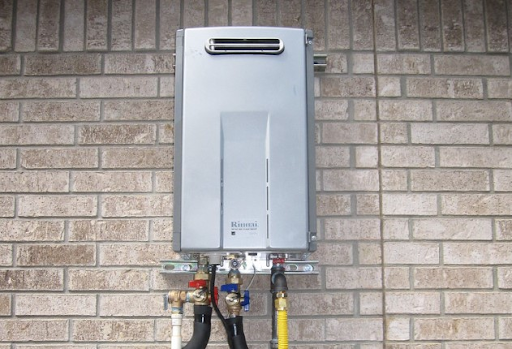Do you find it annoying when you don’t have sufficient hot water when you want to bathe? In the past, many households had large, tank-type water heaters to provide hot water. Now, however, tankless water heaters are becoming a popular option. If you’re looking to upgrade your hot water system, now is the time to switch to a more modern and efficient option. Advanced Rinnai tankless water heaters are perfect for contemporary homes, so make the switch today and experience the advantages of this system.
In this post, we’ll take a detailed look at why tankless water heaters are a wise choice for your home.
How Do Tankless Water Heaters Work?
Tankless water heaters operate differently than their traditional tank-style counterparts. They provide hot water on demand without needing to fill up a storage tank. The cold water passes through a series of coils that are heated by either a gas burner or an electric element. This means hot water is instantly available at the desired temperature, saving energy since it only needs to be heated when it is used. When a hot water tap is opened, the cold water is warmed up and a continuous stream of hot water is supplied.
Why Might a Tankless Water Heater Be a Good Choice?
Below given are some advantages of opting for a tankless water heater instead of a conventional tank-style water heater.
Reduction in Energy Consumption:
A Rinnai hot water heater only heats water when it is needed. This means they use less energy than traditional water heaters, which keep a large tank of hot water ready all the time. Thus, choosing a Ri can save money on energy bills.
Compact Size:
One of the main advantages of tankless water heaters is their compact size. They are much smaller than traditional water heaters, which makes them an ideal choice for homes with limited space. Tankless water heaters can be mounted to a wall and take up minimal space. Additionally, they can be installed outdoors, allowing for even more space savings.
Continuous Water Supply:
The continuous supply of hot water ensures that you will never run out of hot water, no matter how many showers or baths are taken at the same time. Rinnai water heaters are beneficial for households with many members or where hot water is used frequently. This type of heater enables occupants to shower for long periods of time or use multiple appliances simultaneously.
Longer Life-Span:
Tankless water heaters last much longer than traditional water heaters. On average, tankless water heaters can last up to 20 years compared to the 10-15 years of traditional water heaters.
This means that they require less maintenance and replacement, resulting in fewer costs over time.
More Hygenic Water:
A tankless water heater offers continuous hot water that is free from bacteria and other contaminants. It also provides a more consistent water temperature, as there is no need to wait for the tank to refill. This makes Rinnai water heaters a safer and more hygienic option for households with small children.
Your Tankless Water Heater Rinnai: Getting the Most Out of It
- You should choose the water heater according to your needs. A tankless water heater can either be powered by gas or electricity. Gas-powered models are usually stronger and more efficient but need more ventilation. Electric tankless water heaters are easier to install and less maintenance, but may not be enough for bigger homes.
- Take into account the size of your family and the number of bathrooms in your home. This will help to determine the right flow rate that can meet your hot water needs.
- Tankless water heaters need to be placed in an area that is accessible for regular maintenance and repairs.
- Investing in a tankless water heater can seem expensive, but long-term energy cost savings can help to make up for the initial cost.
- Tankless water heaters need to be taken care of regularly to ensure proper working and lasting a long time. You can perform the maintenance yourself or hire someone to do so.
- When installing a Rinnai tankless water heater, check that your home’s gas or electrical infrastructure can handle the increased load. You may need to upgrade your electrical service or gas lines.

